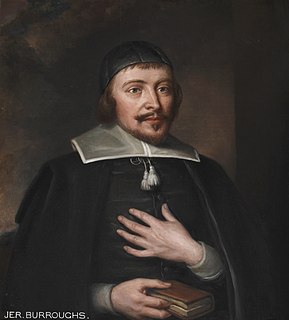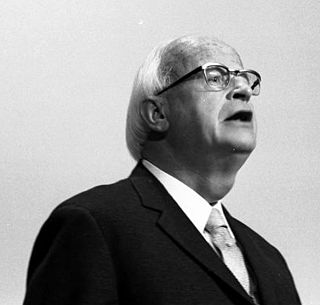A Quote by Karl Barth
This much is certain, that we have no theological right to set any sort of limits to the loving-kindness of God which has appeared in Jesus Christ. Our theological duty is to see and understand it as being still greater than we had seen before.
Related Quotes
We take it for granted that Jesus was not interested in political life: his mission was purely religious. Indeed we have witnessed . . . the 'iconization' of the life of Jesus: 'This is a Jesus of hieratic, stereotyped gestures, all representing theological themes. In this way, the life of Jesus is no longer a human life, submerged in history, but a theological life -- an icon.
We should study Christ, and praise and bless God, and have our hearts enlarged for Jesus Christ. This is the duty of believers to whom God has revealed Christ as wonderful, that in their conversations they should hold out the wonderful glory of Jesus Christ. You should so walk before men as to manifest to all the world that your Savior is a wonderful Savior
I am definitely questioning the atonement and trying to discover how we can see it in a different way. We've got this image of God who needs some sort of flesh, some sort of blood, that needs some sort of vengeance to pay for sin. My experience of a loving God who's asked me to love my enemies - this isn't a God that demands something before you are accepted. I think Jesus died because Jesus was inclusive. God is inclusive. I think that the idea of God somehow being separated from us was more man's idea.
The marker of those who understand the gospel of Jesus Christ is that, when they stumble and fall, when they screw up, they run to God and not from him, because they clearly understand that their acceptance before God is not predicated upon their behavior but on the righteous life of Jesus Christ and his sacrificial death.
A Christian is one who recognizes Jesus as the Christ, the Son of the living God, as God manifested in the flesh, loving us and dying for our redemption; and who is so affected by a sense of the love of this incarnate God as to be constrained to make the will of Christ the rule of his obedience, and the glory of Christ the great end for which He lives.
Neither theological knowledge nor social action alone is enough to keep us in love with Christ unless both are proceeded by a personal encounter with Him. Theological insights are gained not only from between two covers of a book, but from two bent knees before an altar. The Holy Hour becomes like an oxygen tank to revive the breath of the Holy Spirit in the midst of the foul and fetid atmosphere of the world
Before the coming of Jesus Christ, men fled away from God and, being attached to the earth, refused to unite themselves to their Creator. But the loving God has drawn them to Himself by the bonds of love, as He promised by the prophet Osee [Hosea]: "I will draw them with the cords of Adam, with the bonds of love" (11:4). These bonds are the benefits, the lights, the calls to His love, the promises of Paradise which He makes to us, but above all, the gift which He has bestowed upon us of Jesus Christ in the Sacrifice of the Cross and in the Sacrament of the Altar.
It seems to me that when we listen to the Muslim mystics as they talk about Jesus and their love for Jesus, I must say, it’s a lot closer to New Testament Christianity than a lot of the Christians that I hear. In other words if we are looking for common ground, can we find it in mystical spirituality, even if we cannot theologically agree, Can we pray together in such a way that we connect with a God that transcends our theological differences?
I don't believe that God is a fussy faultfinder in dealing with theological ideas. He who provides forgiveness for a sinful life will also surely be a generous judge of theological reflection. Even an orthodox theologian can be spiritually dead, while perhaps a heretic crawls on forbidden bypaths to the sources of life.






































